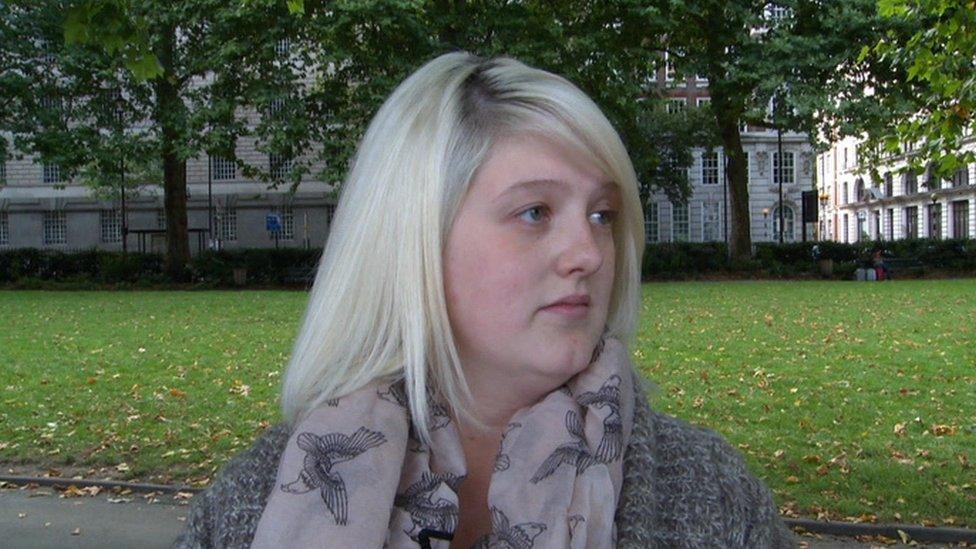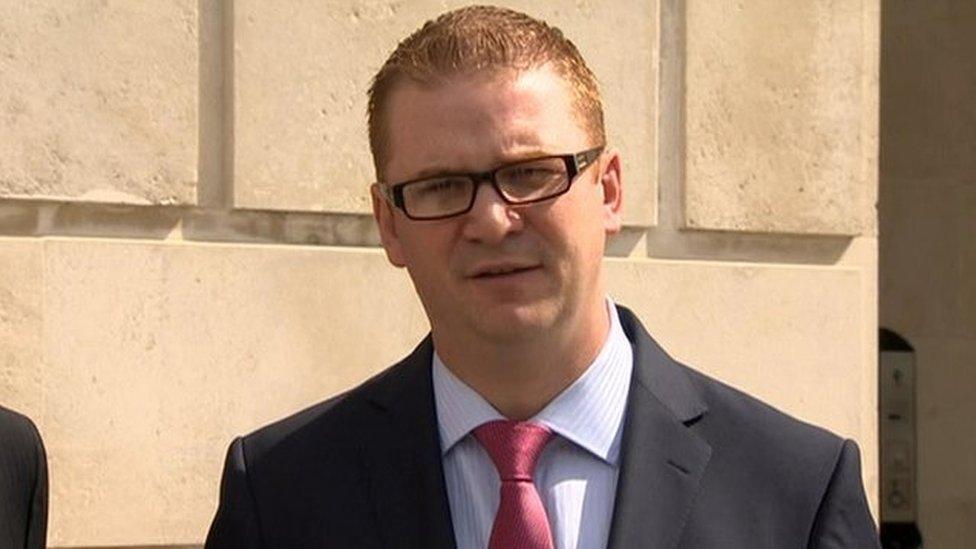Abortion: NI ministers agree to publish guidelines for clinicians
- Published

Northern Ireland's abortion law is different from the rest of the UK
The Northern Ireland Executive has agreed that abortion guidelines for the medical profession are to be published.
Northern Ireland's abortion law differs from the rest of the UK and access to termination is more restricted.
Abortion is only permitted in Northern Ireland if a woman's life is at risk or there is a permanent or serious risk to her mental or physical health.
The long-awaited guidelines are aimed at providing clarification for medical staff on when a termination is legal.
The lack of clarity on the issue has been a sticking point for decades, and clinicians have expressed fear that they could face prosecution for carrying out abortions, based on their interpretation of a permanent or serious risk to woman's mental or physical health.
The publication of the latest set of abortion guidelines follows years of talks between the Department of Health, the Department of Justice and senior clinicians.
It also comes after a series of legal challenges against the current law and a high-profile but unsuccessful campaign to legalise abortion in cases of fatal foetal abnormality.

Campaigner Sarah Ewart said all the guidance in the world cannot change Northern Ireland's "19th Century" abortion law
A fatal foetal abnormality diagnosis means doctors believe an unborn child has a terminal condition and will die in the womb or shortly after birth.
The campaign was led by Northern Ireland woman Sarah Ewart, who spoke out about her own experience of travelling to Great Britain for an abortion in 2013, after doctors told her she was carrying a baby with anencephaly, that had no chance of survival.
Reacting to Thursday's development, she said the new guidelines "may help some women, but it won't help me and other women with fatal foetal diagnoses".
"All the guidance in the world cannot change Northern Ireland's 19th Century law and that is what is needed," Ms Ewart added.
"I live every day knowing that I have a raised risk of a recurrence of anencephaly with any future pregnancy.
"If I am faced with the same diagnosis again, I do not want to be put through the trauma of having to travel again to access the type of healthcare available to women in every other part of the UK."
Ms Ewart lobbied politicians for more than two years on the issue but in February, Northern Ireland Assembly members voted against legalising abortion in cases of fatal foetal abnormality.
Breedagh Hughes of the Royal College of Midwives said she hopes that the guidance provides clarity for medical professionals.
"They need a very clear exposition of what the law is and what the law says is legal," said Ms Hughes.
"They need to know the legal context within which they are working.
"Until the legislation is changed, midwives and medics are working with the legislation that stands and that is the legislation that must be outlined in the guidelines."
Ms Hughes said a major concern for medical professionals is the rise in the numbers of women accessing abortion pills on the internet.
"If women present themselves at an emergency department or a maternity admissions unit and say they have taken these pills, do midwives and medics have to report them to the police?" she asked.
"And if they don't, are they themselves subject to the law?"
Amnesty International, which supported Ms Ewart's campaign, said it would study the new draft legal guidance for medics but repeated its call for urgent reform of Northern Ireland's "restrictive abortion law".
However, anti-abortion campaigners have campaigned against any relaxation of the legislation, saying unborn children with life-limited conditions have a right to life and should be cared for until their death.
Politicians also agreed on Thursday that the working group on abortion set up by Health Minister Simon Hamilton will now include the Department of Justice.
Mr Hamilton was asked to set up the working group last month by First Minister and Democratic Unionist Party leader Arlene Foster.
- Published3 March 2016

- Published11 February 2016

- Published9 February 2016
